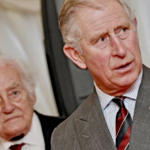Torture is to be ruled out under Proposed Terrorism Laws

We recently published a blog looking at some of the implications of the National Security Legislation Amendment Bill.
This Bill exempted ASIO officials from criminal charges and civil liability in some circumstances – ones that could include the use of various torture methods.
The Bill would also allow for the usual rules of evidence to be bent, which would allow evidence that was obtained illegally or improperly to still be admissible in court.
This led to considerable concern that the new laws could allow ASIO officers to torture those who they suspect of terrorism, and avoid prosecution.
However, Attorney General George Brandis has come out and said that a new clause will be inserted to make it clear that torture will not be allowed under the new laws.
While Brandis still claims that there should be no concerns that law enforcement officers would have used torture, he has stated that the Bill will be amended to explicitly prohibit it.
Senator Leyonhjelm remains sceptical that torture was always off the table, particularly after seeking legal advice in relation to the Bill.
But at least an explicit prohibition will make it absolutely clear.
Torture is forbidden under our national Criminal Code Act 1995, and a new line to be inserted into the National Security Legislation Amendment Bill will make it clear that the proposed law does not sanction torture.
While it is now envisaged that the proposed legislation will prohibit the use of torture upon interrogated terrorism suspects, it appears that not everyone is against the use of torture in some circumstances.
In fact, our recent post stirred up a great deal of emotion and concerning remarks – with one person declaring: ‘let’s go…. Start the torture’.
Some even assume that law enforcement officials would never resort to torture, even if given immunity from prosecution.
But history tells us differently.
Torture has been used as a method of fear and control throughout history, from public torture up until a few hundred years ago, to the torture of Jews during World War II, up to present day torture methods used on detainees in Guantanamo Bay, Cuba – most of whom are held without charge for years and never found guilty of any crimes at all.
It is common for people who haven’t been through the criminal justice system to say things like ‘if you haven’t done anything wrong, you don’t have anything to be afraid of’.
But this assumption is faulty as it assumes that everyone who is charged, or even those who are not charged but merely suspected or investigated, are guilty.
In 2013, about 85% of defendants in NSW left the courtroom with a finding of guilt, according to the Australian Bureau of Statistics.
A large proportion of those people pleaded guilty. A smaller number were found guilty after a hearing.
This meant that the other 15% were found to be not guilty after going through lengthy criminal proceedings.
Many others had their cases dropped during the course of the proceedings.
And the numbers don’t not even take into account those who were arrested or questioned but never had any charges laid against them.
Winston Churchill famously once said “never let a crisis go to waste.”
While the threat of terrorism has hit close to home, it is important to be aware that high risk situations have often been used by governments to bring in laws that would not otherwise be contemplated.
George Brandis’ announcement that torture will now be ruled out is welcome news.
Most sensible members of the community will be relieved to know that torture is not a potential method of interrogation here in Australia.
But perhaps those who aren’t should again be reminded that a ‘person of interest’ or ‘suspect’ is not necessarily guilty of a crime.
And also keep in mind that torturing a person will not necessarily elicit credible evidence – many studies have shown that those being tortured will say just about anything to please the torturer.
It seems that some people out there want blood at any cost, rather than keeping level heads.
And while it is easy to proclaim that law enforcement officials can never be too careful when it comes to investigating terrorism, you may have a different perspective if you, or a family member or friend, were the one being detained and interrogated.






